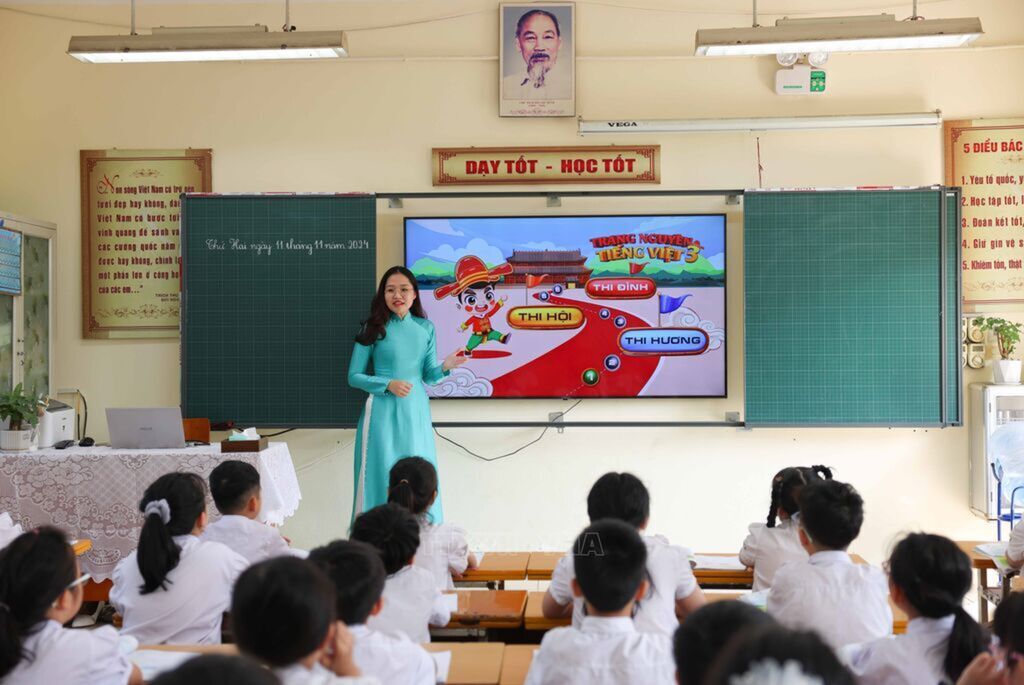 |
| A lesson at Thinh Liet Primary School, Hanoi__Photo: VNA |
The National Assembly, at its 9th session, passed the Law on Teachers, the first specialized law dedicated to comprehensively regulating the legal status, rights, obligations of and welfare policies for teachers.
Consisting of 42 articles arranged in nine chapters, the law affirms the role of teachers as the core force of the education sector, recognizing their important position in the society and emphasizing that they must be respected, protected and honored.
A key highlight of the law is the establishment of the legal status of teachers across both public and non-public education institutions. Accordingly, teachers in public education institutions will have the rights as public employees under the law on public employees and other relevant laws. Meanwhile, teachers in non-public education institutions will exercise their rights in accordance with the labor law and other applicable legal documents.
The law specifies certain acts not allowed to be performed against teachers, such as failing to properly implement regimes and policies toward teachers under relevant laws; and posting or disseminating information that intends to blame teachers for professional performance before competent authorities issue official conclusions.
Regarding the wage policy, the law stipulates that salaries of teachers in public education institutions are ranked at the top in the salary scale system for non-business administrative units. They are also entitled to job-based incentive allowances and other allowances depending on the nature of their job and geographic location. Higher salaries and allowances will be granted for teachers working in early childhood education institutions or specialized schools; and those working in ethnic minority, mountainous and border areas, on islands, or in areas with extremely difficult socio-economic conditions as compared to their peers working under normal conditions.
The law also introduces early retirement options for teachers in early childhood institutions, allowing them to retire up to five years earlier than the statutory retirement age without a reduction in pension, provided they have paid social insurance premiums for at least 15 years.
On the contrary, teachers who are professors or associate professors or doctoral degree holders, and those working in specialized fields in public education institutions may have their service extended beyond the retirement age if they so wish and such extension is required by education institutions provided that they meet the criteria and conditions set by the education institutions. However, such extension must not exceed five years for doctoral degree holders, seven years for associate professors, or 10 years for professors. However, they are not allowed to hold managerial positions.
Worthy of note, for the first time, the code of conduct of teachers is codified. Article 10 of the law outlines the ethical standards governing teachers’ code of conduct in their relationships with students, colleagues, students’ families, and the community.
In addition, the law defines prohibited acts for teachers. It says that teachers in public educational institutions are not allowed to perform the jobs banned for public employees under the law on public employees and relevant legislations. Similarly, teachers in non-public institutions are prohibited to commit practices banned under the labor law and relevant legal provisions.
Moreover, teachers are prohibited from practicing discrimination against students in any form; falsifying admission or assessment results; coercing students to attend extra classes; soliciting unauthorized payments or gifts; and abusing their job status to commit illegal acts.- (VLLF)









